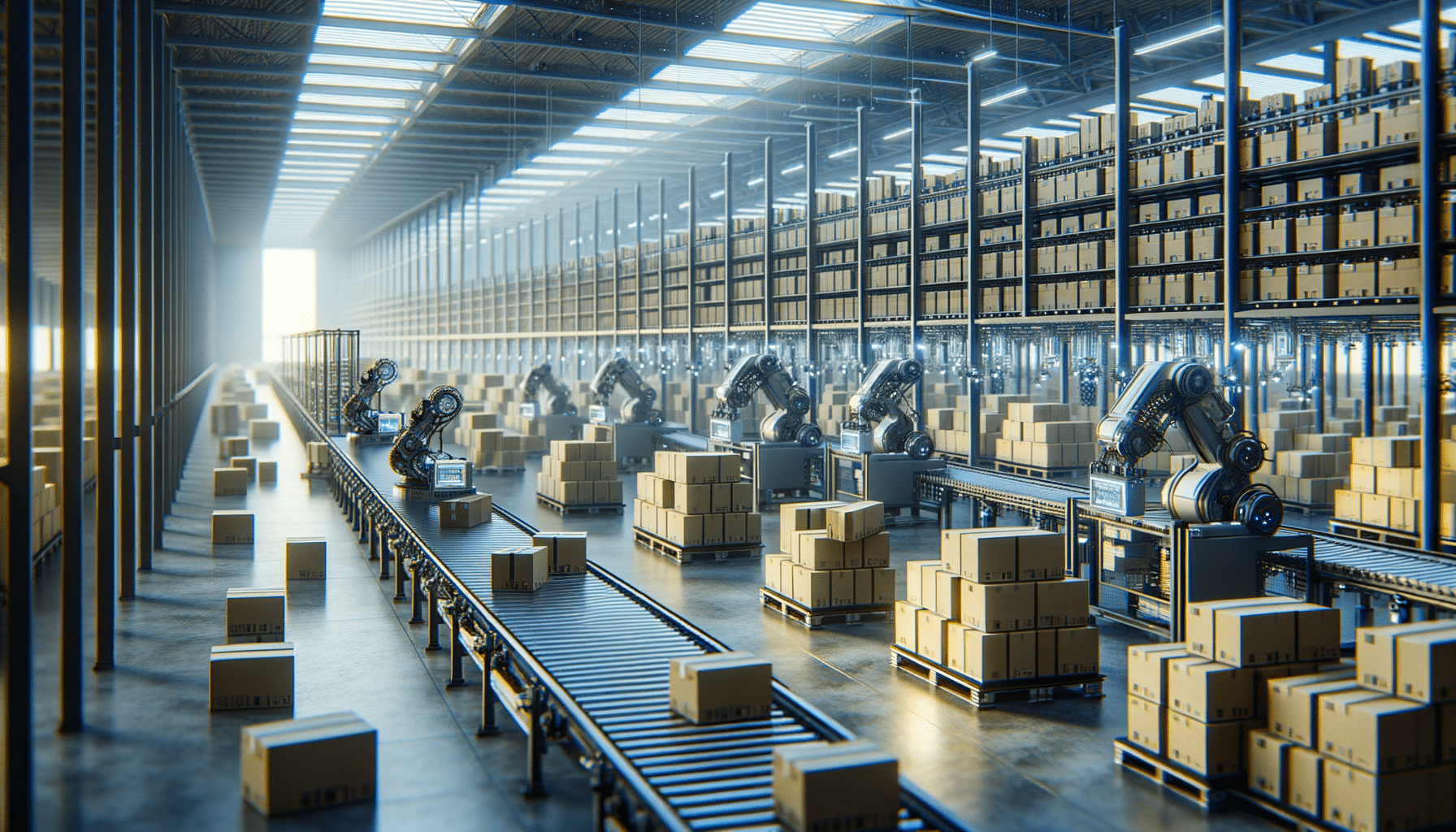
Revolutionizing Logistics: A New Era of Innovation and Efficiency
The Modern Landscape of Logistics
The logistics industry stands at the cusp of a transformative era, marked by rapid technological advancements and innovative practices. As global trade continues to expand, the need for efficient logistics systems has never been more critical. The sector is witnessing a paradigm shift, driven by various factors such as automation, artificial intelligence, and the integration of cutting-edge technologies. This transformation addresses the challenges and opportunities in the evolution of logistics, offering a glimpse into a future where supply chains are more resilient and adaptable.
One of the most significant changes in logistics is the increasing reliance on data-driven decision-making. With the proliferation of the Internet of Things (IoT) and advanced analytics, companies can now gather and analyze vast amounts of data in real-time. This capability enhances the visibility and transparency of supply chains, allowing for more informed decisions and efficient operations. Furthermore, the use of blockchain technology has introduced a new level of security and traceability, ensuring that every transaction is recorded and verified. These innovations are crucial in overcoming the challenges and opportunities in the evolution of logistics, as they provide the tools necessary to navigate the complexities of global trade.
The Impact of Automation and AI on Supply Chain Efficiency
Automation and artificial intelligence (AI) are revolutionizing the logistics sector by driving unprecedented levels of efficiency and accuracy. These technologies streamline operations and reduce human error, leading to significant cost savings and improved performance. The impact of automation and AI on supply chain efficiency is profound, as it allows for the optimization of processes and the elimination of bottlenecks that can hinder productivity.
Automated systems, such as robotic process automation (RPA) and autonomous vehicles, are increasingly being deployed in warehouses and distribution centers. These systems handle repetitive tasks with precision and speed, freeing up human workers to focus on more complex and strategic activities. AI-powered predictive analytics are also playing a crucial role in enhancing supply chain efficiency. By analyzing historical data and identifying patterns, AI systems can forecast demand and optimize inventory levels, reducing waste and ensuring timely deliveries.
Moreover, AI-driven chatbots and virtual assistants are improving customer service by providing real-time support and resolving queries with minimal human intervention. This not only enhances customer satisfaction but also reduces the workload on service teams. As automation and AI continue to evolve, their impact on supply chain efficiency will only grow stronger, paving the way for a more streamlined and agile logistics industry.
Trends Redefining Global Transportation and Distribution Networks
The logistics industry is experiencing a wave of new trends that are reshaping global transportation and distribution networks. These trends redefining global transportation and distribution networks are driven by the need for sustainability, efficiency, and adaptability in a rapidly changing world.
One of the most notable trends is the shift towards sustainable transportation solutions. As environmental concerns take center stage, logistics companies are exploring eco-friendly alternatives to traditional modes of transportation. Electric vehicles, hydrogen-powered trucks, and rail transport are gaining traction as viable options for reducing carbon emissions and minimizing the environmental impact of logistics operations.
Another trend is the rise of e-commerce and its influence on distribution networks. With the exponential growth of online shopping, logistics providers are adapting to meet the demands of fast and reliable delivery services. This has led to the development of innovative distribution models, such as micro-fulfillment centers and last-mile delivery solutions, which aim to bring products closer to consumers and expedite delivery times.
Additionally, the globalization of supply chains has prompted logistics companies to invest in advanced technologies and infrastructure to support seamless cross-border operations. The integration of digital platforms and smart technologies is facilitating real-time tracking and communication, enabling companies to respond swiftly to changes in demand and supply. These trends are fundamental to the evolution of logistics, as they address the challenges and opportunities in the evolution of logistics and set the stage for a more connected and efficient global network.
Key Innovations Shaping the Future of Logistics
Innovation is at the heart of the logistics industry’s transformation, with several key developments poised to shape its future. These key innovations shaping the future of logistics are redefining the way goods are transported, stored, and managed across the globe.
One such innovation is the use of drones for delivery purposes. Drones offer a promising solution for reaching remote or hard-to-access areas, delivering goods quickly and efficiently. As regulations continue to evolve, the deployment of drones for commercial deliveries is expected to increase, providing new opportunities for logistics companies to enhance their services.
Another groundbreaking development is the advent of 3D printing technology. By enabling on-demand production, 3D printing has the potential to revolutionize supply chains by reducing the need for large inventories and long-distance transportation. This technology allows companies to produce goods closer to their customers, minimizing lead times and lowering transportation costs.
Furthermore, the integration of advanced robotics in warehouses is transforming the way goods are handled and stored. Collaborative robots, or cobots, work alongside human employees to perform tasks with precision and speed, increasing productivity and efficiency. These innovations, along with the continuous advancement of technologies such as AI and IoT, are crucial in addressing the challenges and opportunities in the evolution of logistics, paving the way for a more dynamic and responsive industry.
How Technology is Transforming Modern Logistics Systems
Technology is playing a pivotal role in the transformation of modern logistics systems, driving improvements in efficiency, accuracy, and sustainability. The integration of digital tools and platforms is enabling companies to optimize their operations and meet the demands of a rapidly changing market. This section explores how technology is transforming modern logistics systems and the benefits it brings to the industry.
One of the most significant technological advancements in logistics is the use of cloud-based platforms for data management and communication. These platforms facilitate real-time collaboration and information sharing among stakeholders, enhancing the visibility and transparency of supply chains. By providing a centralized hub for data storage and analysis, cloud platforms enable companies to make informed decisions and respond swiftly to changes in demand and supply.
Another transformative technology is the use of big data analytics to drive decision-making. By analyzing large volumes of data, logistics companies can gain valuable insights into customer behavior, market trends, and operational performance. This information is crucial for optimizing supply chain processes, reducing costs, and improving service quality.
Additionally, the Internet of Things (IoT) is revolutionizing logistics by connecting physical assets and enabling real-time tracking and monitoring. IoT devices, such as sensors and RFID tags, provide valuable data on the location, condition, and status of goods, allowing companies to optimize their logistics operations and enhance customer satisfaction. These technologies, along with the continuous evolution of AI and automation, are reshaping modern logistics systems and setting the stage for a more efficient and responsive industry.


